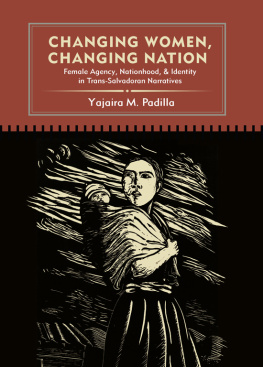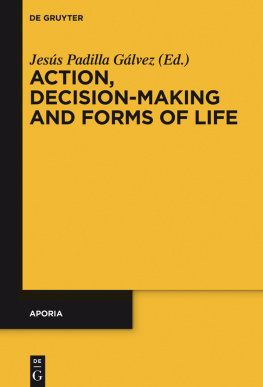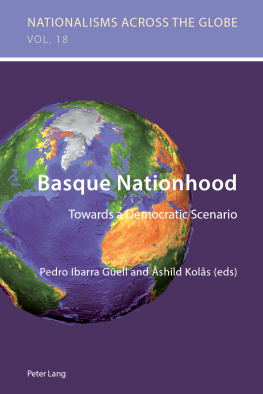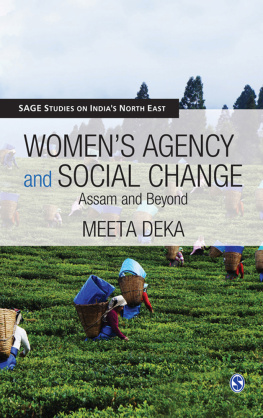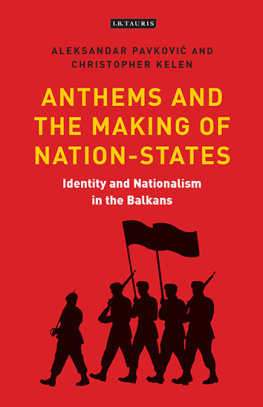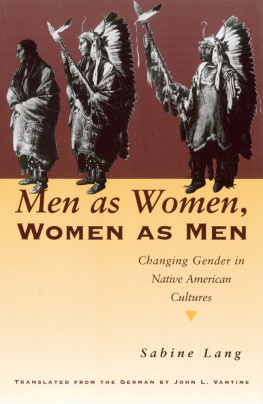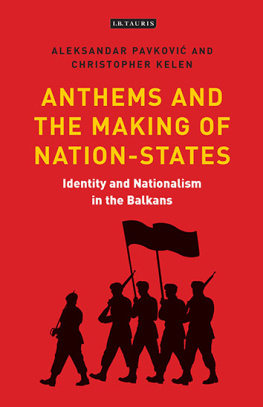Padilla - Changing women, changing nation: female agency, nationhood, and identity in trans-Salvadoran narratives
Here you can read online Padilla - Changing women, changing nation: female agency, nationhood, and identity in trans-Salvadoran narratives full text of the book (entire story) in english for free. Download pdf and epub, get meaning, cover and reviews about this ebook. City: Albany, El Salvador, Salvador, year: 2012, publisher: State University of New York Press, genre: Politics. Description of the work, (preface) as well as reviews are available. Best literature library LitArk.com created for fans of good reading and offers a wide selection of genres:
Romance novel
Science fiction
Adventure
Detective
Science
History
Home and family
Prose
Art
Politics
Computer
Non-fiction
Religion
Business
Children
Humor
Choose a favorite category and find really read worthwhile books. Enjoy immersion in the world of imagination, feel the emotions of the characters or learn something new for yourself, make an fascinating discovery.
- Book:Changing women, changing nation: female agency, nationhood, and identity in trans-Salvadoran narratives
- Author:
- Publisher:State University of New York Press
- Genre:
- Year:2012
- City:Albany, El Salvador, Salvador
- Rating:4 / 5
- Favourites:Add to favourites
- Your mark:
- 80
- 1
- 2
- 3
- 4
- 5
Changing women, changing nation: female agency, nationhood, and identity in trans-Salvadoran narratives: summary, description and annotation
We offer to read an annotation, description, summary or preface (depends on what the author of the book "Changing women, changing nation: female agency, nationhood, and identity in trans-Salvadoran narratives" wrote himself). If you haven't found the necessary information about the book — write in the comments, we will try to find it.
Padilla: author's other books
Who wrote Changing women, changing nation: female agency, nationhood, and identity in trans-Salvadoran narratives? Find out the surname, the name of the author of the book and a list of all author's works by series.
Changing women, changing nation: female agency, nationhood, and identity in trans-Salvadoran narratives — read online for free the complete book (whole text) full work
Below is the text of the book, divided by pages. System saving the place of the last page read, allows you to conveniently read the book "Changing women, changing nation: female agency, nationhood, and identity in trans-Salvadoran narratives" online for free, without having to search again every time where you left off. Put a bookmark, and you can go to the page where you finished reading at any time.
Font size:
Interval:
Bookmark:
SUNY series in Latin American and Iberian Thought and Culture

Jorge J. E. Gracia and Rosemary Geisdorfer Feal, editors
Changing Women, Changing Nation
Female Agency, Nationhood, and Identity in Trans-Salvadoran Narratives
Yajaira M. Padilla

Cover: Desplazados, block print, part of the Seeds and Corn series, an original work of art by Alynn Guerra. Courtesy of The University of Kansas.
Published by State University of New York Press, Albany
2012 State University of New York
All rights reserved
Printed in the United States of America
No part of this book may be used or reproduced in any manner whatsoever without written permission. No part of this book may be stored in a retrieval system or transmitted in any form or by any means including electronic, electrostatic, magnetic tape, mechanical, photocopying, recording, or otherwise without the prior permission in writing of the publisher.
For information, contact State University of New York Press, Albany, NY
www.sunypress.edu
Production by Kelli Williams LeRoux
Marketing by Kate McDonnell
Library of Congress Cataloging-in-Publication Data
Padilla, Yajaira M.
Changing women, changing nation : female agency, nationhood, and identity in trans-Salvadoran narratives / Yajaira M. Padilla.
p. cm. (SUNY series in Latin American and Iberian thought and culture) Includes bibliographical references and index.
ISBN 978-1-4384-4277-8 (hardcover : alk. paper)
1. Salvadoran fictionHistory and criticism. 2. Revolutionary literature, SalvadoranHistory and criticism. 3. Women in literature. 4. Identity (Psychology) in literature. 5. El SalvadorIn literature. 6. American fictionHispanic American authorsHistory and criticism. I. Title.
PQ7534.P33 2012
863'.64099287097284dc23
2011031101
10 9 8 7 6 5 4 3 2 1
Acknowledgments
Books are never an individual enterprise. Without institutional support and the generosity of colleagues, friends, and family, one would be hard-pressed to accomplish such a feat. A New Faculty Research Grant and General Research Fund Grant provided by the University of Kansas allowed me to conduct necessary research in Central America and Los Angeles for two of the book's most pivotal chapters. At KU, I have found an amazing network of colleagues to whom I owe a great debt. I would like to thank, first and foremost, Jorge Prez, my unofficial mentor, whose careful reading of all my work, professional and personal guidance, and friendship have been invaluable to me. I am grateful for the knowledge that Stuart Day and Vicky Unruh have shared with me as scholars as well as the professional support they have provided to me as administrators. Outside of KU, my sincerest gratitude goes to Misha Kokotovic, an early mentor and esteemed friend who helped me cultivate my interest in Central American literature and women's struggles, to Arturo Arias and Ana Patricia Rodrguez for taking me under their wings and paving the way for scholars like me, and to Norma Klahn, who taught me the nuts and bolts of research and was a strong Latina role model. My friends both in and outside academia, Holly Goerdel, Mara Bernath, Alyssa Labrado, Andrea Gracia, Misti Oto, and Stacy Carlock, have been a constant source of understanding and warmth, a welcome refuge from the stresses of the profession. Thank you. Words are not enough to express how thankful I am to my parents, Oscar and Alicia Padilla, two courageous individuals who never stopped crossing borders and gave me all that they never had, and to my three siblings, Georgina, Lisa, and Oscar, for putting up with my bad moods and helping me laugh through it all. Finally, I wish to thank my husband, Steven Rosales, for weathering the most difficult of times and for bringing such joy and endearing love into my life.
An earlier version of also originally appeared as an article published in Latino Studies, a Palgrave Macmillan journal. Alynn Guerra was generous enough to let me use her beautiful artwork for the cover. With regard to the translations that appear in the book, I have used quotations from published translations of primary literary works when available and, in some instances, have made modifications. Spanish quotations are followed by their English translations in brackets. Page numbers are provided in parenthesis and follow this same order, Spanish first, then English. If no secondary page number is given, that means that the translation of the material is my own.
Introduction
Writing Women into Nation, War, and Migration
During the brief span of the last three decades, El Salvador has been witness to some of its most defining political, social, and economic transformations, including a twelve-year civil war dating from 1980 to 1992, a postwar neoliberal project of national reconstruction and modernization, and the mass emigration of Salvadorans to neighboring and international destinations such as the United States. All of these processes have undoubtedly transformed El Salvador and opened new questions regarding national identity, citizenship, and ethnicity. These changes, however, have also generated a new focus on gender given the instrumentality and the unprecedented numbers of Salvadoran women who have been involved in these developments, participating in what have traditionally been considered male enterprises, such as armed revolution, postwar democratization, and migration.
In this book, I engage this gendered history through the optic of cultural production, specifically what I refer to as trans-Salvadoran narrativesSalvadoran and U.S. Salvadoran texts dating from 1980 to 2005. Here I explore how the primarily allegorical representations of women in these narratives bring into focus women's actual roles and agency within the context of these interrelated national and transnational occurrences. Viewing this interplay within literature brings to the fore the implications such depictions hold for rethinking wider-reaching issues. What insight can be gained from these representations regarding the gendered dynamics of a Salvadoran national identity that is continuously being redefined and articulated? How do these portrayals of women speak to the construction of gendered ethnicities in and outside the nation, in particular Salvadoran-American identities? And in broader terms, what can they tell us about the multiple intersections of gender, literature, nation, and identity?
An initiating factor of this recent history of Salvadoran women's participation in public life was the country's civil war, the culmination of a long past of social, political, and economic polarization instituted and perpetuated by a dominant oligarchy and sustained by military repression. In the years leading up to the war, Christian-based and grassroots initiatives aimed at changing the then-current system were deemed subversive by the state, making them a prime target of the government's military forces. Human rights violations such as disappearances and political assassinations escalated while economic conditions continued to deteriorate. Given the milieu of Cold War politics and the triumph of the Nicaraguan Revolution in 1979, U.S. intervention in El Salvador also significantly increased. Under President Carter, the U.S. government approved a military aid package totaling 5.7 million dollars, eleven times more than the annual aid the country normally received (Montgomery 131), which kept El Salvador's struggling economy afloat but also continued to fund the country's oppressive military regime. Lacking other alternatives, El Salvador's militant left, the Farabundo Mart National Liberation Front (FMLN), adopted a strategy of popular insurrection and armed struggle. Consequently, by 1980 the stage was set for a civil war that took a greater toll on the country than any other event prior, claiming the lives of more than 75,000 Salvadorans and forcing several tens of thousands to flee from their homes.
Next pageFont size:
Interval:
Bookmark:
Similar books «Changing women, changing nation: female agency, nationhood, and identity in trans-Salvadoran narratives»
Look at similar books to Changing women, changing nation: female agency, nationhood, and identity in trans-Salvadoran narratives. We have selected literature similar in name and meaning in the hope of providing readers with more options to find new, interesting, not yet read works.
Discussion, reviews of the book Changing women, changing nation: female agency, nationhood, and identity in trans-Salvadoran narratives and just readers' own opinions. Leave your comments, write what you think about the work, its meaning or the main characters. Specify what exactly you liked and what you didn't like, and why you think so.

